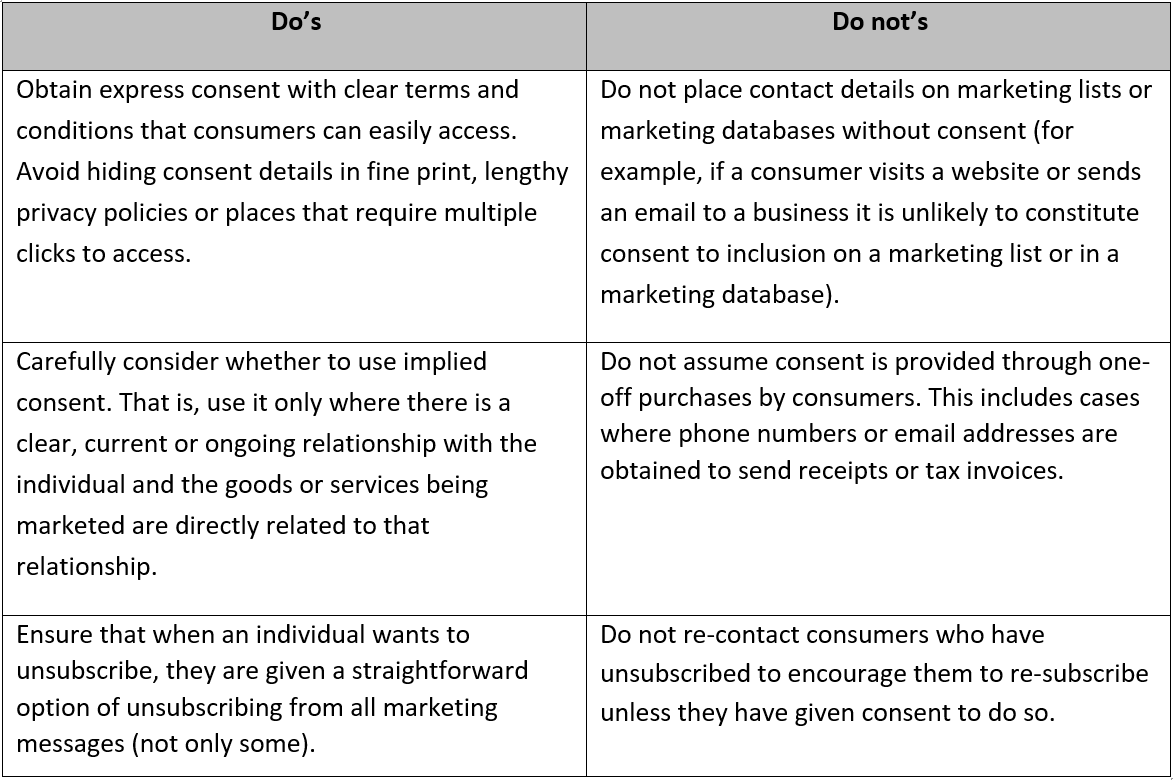03 July 2024
2 min read
#Corporate & Commercial Law, #Data & Privacy, #Technology, Media & Communications
Published by:

Over the last year, the Australian Communications and Media Authority (ACMA) has fined numerous businesses for breaching the Spam Act 2003 (Cth). Many of those breaches related to lax marketing practices and slow procedures (see our earlier articles on reviewing your business’ marketing settings and penalties for breaching spam laws).
To bring in the new financial year, the ACMA has released a Statement of Expectations – Use of consent in telemarketing and e-marketing which sets out its views on the minimum requirements to comply with the Spam Act and the Do Not Call Register Act 2006 (Cth).
As a precaution, businesses should review their current consent practices and how they collect data to ensure any data collected for one purpose is not used for another without consent.
Below are some of the key do’s and do not’s from the ACMA statement.

To see the full list, visit the ACMA’s website here.
Consent is required before sending a marketing-related email, regardless of its content. An email asking for consent is subject to the same requirements as an email marketing your product or services.
Several of ACMA’s recent actions have followed consumer complaints. If your consumer complaints are high, it is a sign to take action.
Besides consent, businesses should also consider other issues related to content and ensure functional unsubscribe mechanisms. In addition, any non-electronic marketing may be covered by the Privacy Act.
In addition to consent, businesses should also address issues related to content and ensuring functional unsubscribe processes. Furthermore, it's important to note that non-electronic marketing activities may fall under the coverage of the Privacy Act.
Our team of experienced lawyers can help you manage your consent flows and compliance generally. If you have any questions or need assistance, get in touch with our team below.
Disclaimer
The information in this publication is of a general nature and is not intended to address the circumstances of any particular individual or entity. Although we endeavour to provide accurate and timely information, we do not guarantee that the information in this article is accurate at the date it is received or that it will continue to be accurate in the future.
Published by: